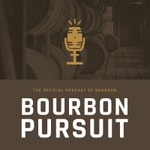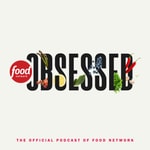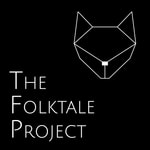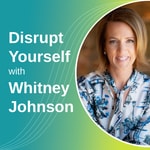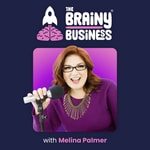Species – Details, episodes & analysis
Podcast details
Technical and general information from the podcast's RSS feed.
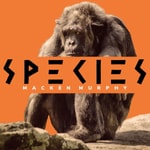
Species
mackenmurphy.org
Frequency: 1 episode/10d. Total Eps: 242

Recent rankings
Latest chart positions across Apple Podcasts and Spotify rankings.
Apple Podcasts
🇨🇦 Canada - nature
28/07/2025#29🇬🇧 Great Britain - nature
28/07/2025#33🇩🇪 Germany - nature
28/07/2025#42🇺🇸 USA - nature
28/07/2025#55🇫🇷 France - nature
28/07/2025#93🇨🇦 Canada - nature
27/07/2025#16🇩🇪 Germany - nature
27/07/2025#25🇺🇸 USA - nature
27/07/2025#43🇨🇦 Canada - nature
26/07/2025#24🇩🇪 Germany - nature
26/07/2025#92
Spotify
No recent rankings available
Shared links between episodes and podcasts
Links found in episode descriptions and other podcasts that share them.
See all- https://www.podcastawards.com/
286 shares
- https://www.podcastawards.com/app/signup
210 shares
- https://www.effinbirds.com/
89 shares
RSS feed quality and score
Technical evaluation of the podcast's RSS feed quality and structure.
See allScore global : 43%
Publication history
Monthly episode publishing history over the past years.
In Other Nests | Macken Murphy
dimanche 15 septembre 2024 • Duration 59:59
A natural history of infidelity and a history of science on the topic. Listen and learn about the oldest known laws in history, fish that get pessismistic without their boyfriend, the costs of monogamy, the ovulatory shift hypothesis (and a conspiracy theory about it), the mate-switching vs. dual-mating debate, and so much more.
If you want to listen to my audio course on human evolution, you can find it here: https://mackenmurphy.gumroad.com/l/humanevolution?layout=profile
If you want to donate to support Species, you can do so, here: https://donorbox.org/keep-species-free
If you want to keep up with my work, everything is here: https://linktr.ee/mackenmurphy
Timestamps:
0:00 Intro
12:38 Theme
13:42 The Costs of Monogamy
20:01 The Many Strategic Functions of Infidelity
27:16 The Primary Reason Men Cheat
29:21 Intro to The Dual Mating Strategy
32:02 Ovulatory Shifts in Mate Preferences
34:26 Intro to the Mate Switching Hypothesis
36:13 Initial Impressions
42:15 Testing Mate-Switching vs. Dual-Mating
46:35 Addressing Critiques
48:16 The Usual Caveats
50:26 The Manosphere Reaction
51:31 Rollo’s Conspiracy (lol)
55:01 Nature’s Curse, Nature’s Gift
58:15 Outro
Selected references (most key information is in, or referenced in, these texts): Murphy, M., Phillips, C. A., & Blake, K. R. (2024). Why women cheat: testing evolutionary hypotheses for female infidelity in a multinational sample. Evolution and Human Behavior, 45(5), 106595.
Buss, D. M., Goetz, C., Duntley, J. D., Asao, K., & Conroy-Beam, D. (2017). The mate switching hypothesis. Personality and Individual Differences, 104, 143-149.
Gangestad, S. W., & Thornhill, R. (1998). Menstrual cycle variation in women's preferences for the scent of symmetrical men. Proceedings of the Royal Society of London. Series B: Biological Sciences, 265(1399), 927-933.
Gangestad, S. W., Thornhill, R., & Garver-Apgar, C. E. (2005). Adaptations to ovulation: Implications for sexual and social behavior. Current Directions in Psychological Science, 14(6), 312-316.
Also:
Finkelstein, J. J. (1968). The Laws of Ur-Nammu. Journal of cuneiform studies, 22(3-4), 66-82.
Hicks, T. V., & Leitenberg, H. (2001). Sexual fantasies about one's partner versus someone else: Gender differences in incidence and frequency. Journal of Sex Research, 38(1), 43-50.
Laubu, C., Louâpre, P., & Dechaume-Moncharmont, F. X. (2019). Pair-bonding influences affective state in a monogamous fish species. Proceedings of the Royal Society B, 286(1904), 20190760.
Scelza, B. A. (2011). Female choice and extra-pair paternity in a traditional human population. Biology Letters, 7(6), 889-891.
Scelza, B. A. (2013). Choosy but not chaste: Multiple mating in human females. Evolutionary Anthropology: Issues, News, and Reviews, 22(5), 259-269.
Scelza, B. A. (2014). Jealousy in a small-scale, natural fertility population: The roles of paternity, investment and love in jealous response. Evolution and Human Behavior, 35(2), 103-108.
Stewart-Williams, S. “Nurture Alone Can’t Explain Male Aggression.” Nautilus. April 26, 2019. http://nautil.us/blog/nurture-alone-cant-explain-male-aggression
Yildiz, F. (1981). A tablet of codex Ur-Nammu from Sippar. Orientalia, 50(1), 87-97.
Forgotten Apes | Dr. Susan Cheyne
dimanche 5 mai 2024 • Duration 01:29:34
An audio essay on human nature, followed by an interview with primatologist Dr. Susan Cheyne. Susan is the co-director of the Borneo Nature Foundation International and the Borneo River Initiative for Nature Conservation and Communities, she is the Vice Chair of the IUCN Section on Small Apes, and she is also a Senior Lecturer at Oxford Brookes; she has been studying gibbons for about 27 years. Our conversation is wide-ranging, but centers on gibbons. We discuss gibbon locomotion, life among gibbons, the nature and function of gibbon song, gibbon violence, monogamy, and infanticide (and lack thereof), and other subjects. Enjoy.
Dr. Cheyne's research: http://www.susancheyne.com
IUCN Section on Small Apes: https://gibbons.asia/
Timestamps:
0:00 Are humans naturally monogamous?
17:27 Introducing today's subject and guest
20:25 Gibbon overview (interview starts)
31:57 Why do humans have twins?
34:02 A day in the life of a gibbon
38:57 Studying gibbons
40:37 Forgotten apes
44:06 Monogamy
1:09:27 Violence
1:11:34 Singing
1:17:49 Intelligence
1:23:28 Conservation
Sources relevant to the introduction:
Stewart-Williams & Thomas | "The Ape That Thought It Was a Peacock" | 2013
Fisher | "The Anatomy of Love" | 2016
Ryan & Jethá | "Sex at Dawn" | 2010
Kramer | Pew Research | 2020
Marlowe | Behavioural Processes | 2000
Chapais | Evolutionary Anthropology | 2013
Schacht & Kramer | Sec Behavioral and Evolutionary Ecology | 2019
Shankman | "The Mead–Freeman Controversy Continues" | 2018 (I'm not sure if this view is correct; once again, you can find academics on both sides of this.)
Mimic Octopus
lundi 5 décembre 2022 • Duration 21:44
Nature's greatest shapeshifter, the mimic octopus is known for their spectacular impersonations of other species.
Bibliography: https://docs.google.com/document/d/1CrxPPq4mAJpmmQTFIh51KzoHa1SZZv5C4dF-KyFB0ik/edit?usp=sharing
Flying Squid
lundi 4 mai 2020 • Duration 24:57
Yes, this is a real thing. No, we don't mean "gliding," or "jumping," we mean flying.
Come learn about a biological rocket and the history of jet propulsion on this insane episode of Species.
Pandemics, Politics, Sex, and Sentience with Geoffrey Miller
mardi 28 avril 2020 • Duration 01:50:16
Geoffrey Miller is among the most prominent scientists on earth. As an evolutionary psychologist, he has published over one hundred academic articles with over 14,000 citations, and he is the author of several popular books. His work has been featured everywhere from The New York Times to The Joe Rogan Experience, and he has worked as a consultant for governments, NGOs, and Fortune 500 companies alike.
In this conversation, he uses evolutionary psychology as a lens with which to view a wide variety of topics, including: COVID-19, politics, free speech, polyamory, consciousness and the self.
Relevant links: - Geoffrey's website - Virtue Signaling book - Consciousness essay - Geoffrey's YouTube channel - Twitter - Geoffrey's recommended books for reading during the pandemicToucan
lundi 27 avril 2020 • Duration 21:02
Parrotfish
lundi 20 avril 2020 • Duration 22:03
Learn about the defensive benefits of mucus, the origins of disgust, the disturbing source of tropical beaches, and the benefits of changing sex, all on this episode of Species.
COVID-19 & Animal Activism with John Oberg
jeudi 16 avril 2020 • Duration 01:09:08
In this episode, Macken sits down for a livestream with social media expert John Oberg. John gives us a tutorial on activism in the era of social distancing, before discussing a wide variety of topics relating animals and COVID-19. John and Macken discuss the humanist reasons to go vegan, wet markets, factory farms, and the ban on eating dogs in China.
John Oberg is one of the most prominent characters in the modern animal rights movement. He is an animal advocate hoping to make the world a kinder place by utilizing the power of social media. He recently launched his own independent project for animals through Patreon. Prior to that, he served as Director of New Media for the international animal protection organization, The Humane League. And prior to that, John served as Director of Communications for Vegan Outreach. In both of these roles, John oversaw social media for the organizations which led to a tenfold increase in following for both, as well as over 1 billion views of content posted to these pages.
You can find John on his website, Patreon, Twitter, Instagram, Facebook, and YouTube.
Oryx
lundi 13 avril 2020 • Duration 20:48
Fruit Fly
lundi 6 avril 2020 • Duration 23:28


